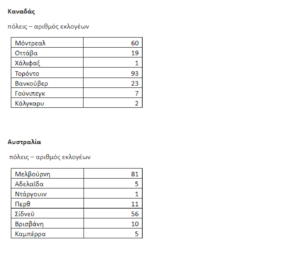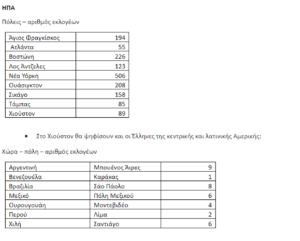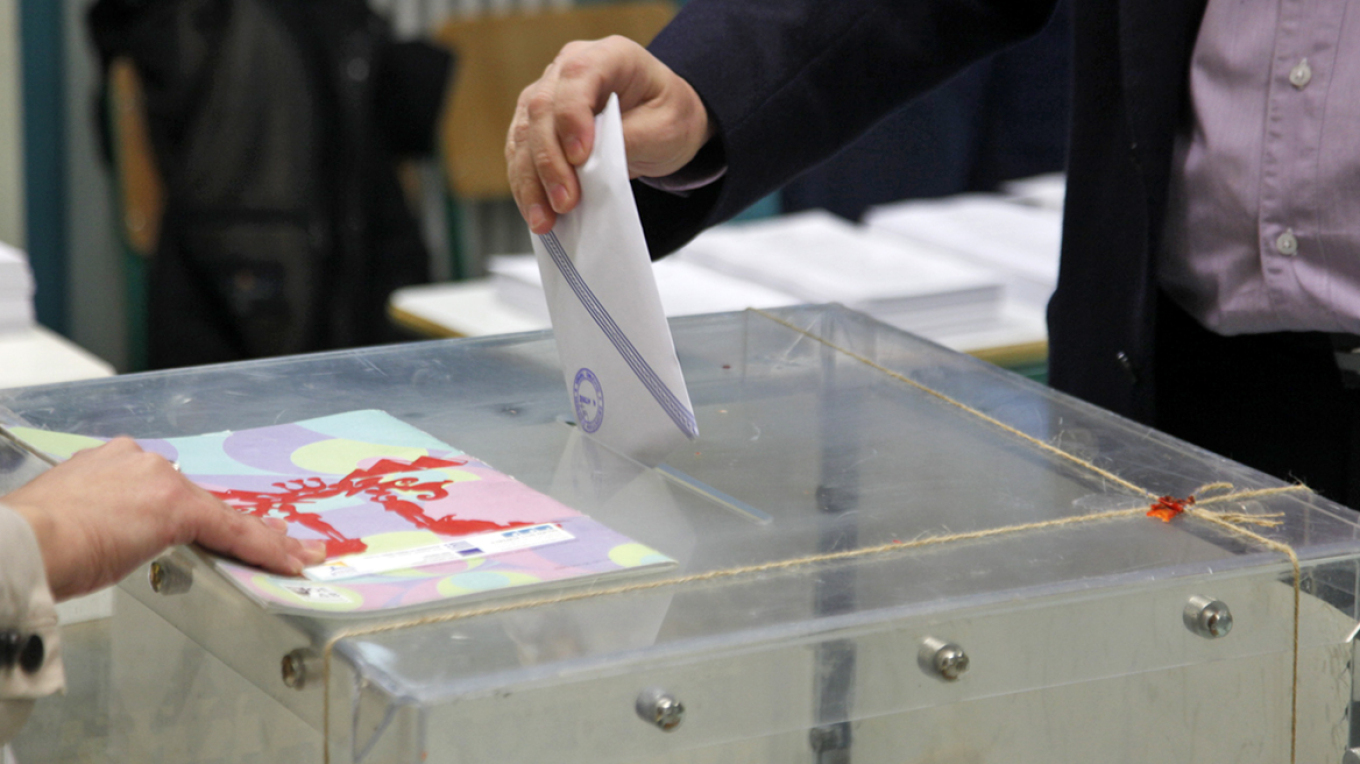A total of 22,855 Greeks abroad will come on Saturday, May 20, from 7:00 a.m. to 7:00 p.m. local time in each country in the 99 polling stations set up in 35 countries in order to vote. The 19,998, i.e. the vast majority of voters, come from European countries with the United Kingdom leading the way with 4,876 registrations, the German diaspora follows with 3,326 registrations, and the Netherlands with 1,935 closing the top three.
Greeks living permanently or temporarily abroad could be registered in the special electoral rolls and vote for the May elections from their place of residence if they cumulatively meet the following conditions:
– Be already registered in the country’s electoral rolls
– in the last 35 years have lived a total of two years within the Greek territory
– have submitted a tax return (E1 or E2 or E3 or E9) during the current or previous tax year. The tax return requirement does not apply to those who are under 30 years of age and have first-degree relatives who have submitted a tax return.
– have submitted a registration application in the special foreign electoral rolls until 12 days before the announcement of the elections, i.e. until April 11, 2023. Those who submitted applications from April 12 onwards will be able to vote from abroad in the next national elections, for example in July if there is a new round. Suspensions or deletions of applications that took place less than three (3) days before the announcement of the elections will be registered in the special electoral lists abroad after the May elections.
On the link of the Ministry of the Interior, there is an updated list of clarifications for a series of issues concerning voters abroad ypes.gr For the establishment of a polling centre in a city required the registration of at least 40 voters, otherwise, the registered voters are transferred to another centre in the nearest city. This results in many voters having to travel several kilometres even to other neighbouring or non-neighbouring countries to vote, making their participation doubtful. See the complete list of polling stations for Greeks abroad.
For example the two registered in India (1 in New Delhi and 1 in Mumbai), the 7 from Thailand (Bangkok), and the 2 from the Philippines (Manila) will need to travel to Singapore while the 29 registered in various cities in China and the 13 of Japan will have to travel to Korea (Seoul) to vote. Also, the 36 registered in Central and South American countries will have to go to Houston, USA.
Why Albanian expatriates vote in Sofia
Low turnout resulted in no polling station being set up in Albania as well as from Argyrokastro and Tirana there were only 7 registrations. The number may seem small, but it must be taken into account that the distance between Argyrokastro and Ioannina is only 90 km and Northern Epirotians with the right to vote in Greece prefer to vote in the country by “crossing” the candidate of their choice.
In neighbouring Skopje, there was one registration as well from Bosnia (Sarajevo) while 13 voters were registered in the lists of Serbia (Belgrade). All of the above will be able to vote in Sofia, Bulgaria, as 57 Greek voters registered there and set up a polling station. In Sofia, all 8 who registered in Plovdiv will be able to vote.
However, the number of people registered in the special electoral rolls by country also confirms the obstacles that the law has placed on traditional immigrant communities in the USA, Canada, and Australia. It is recalled that in order to approve the law, a constitutionally increased majority of 200 MPs was required, i.e. the positive vote of the opposition parties, resulting in the KKE and then SYRIZA demanding the introduction of “filters” on which Greeks abroad could be facilitated and vote remotely contrary to the basic desire of the government which wanted the facilitation of all Greeks abroad who are already registered to vote catalogs. The bureaucratic “filters” for proven presence in Greece in the last 35 years seem to have worked prohibitively for Greeks who immigrated 40 and 50 years ago, with the result that 1,644 of the large and active Greek community in the USA finally registered in Australia to have a total of just 169 entries, in Canada 205 and in South Africa 76. Of course, there are also estimates that support that many Greek immigrants from specific countries will be in Greece during the election period for vacation and will vote normally.



The 13 countries with the most voters:
United Kingdom 4,876 voters
Germany 3,326
Netherlands 1,935
America 1,680
Belgium 1,630
Cyprus 1,462
Switzerland 1,377
France 1,058
Sweden 669
Luxembourg 569
Denmark 560
Spain 500
Italy 373
Ask me anything
Explore related questions





